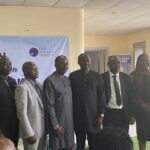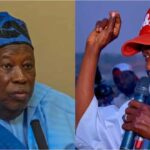LAST week, the European Union Election Observation Mission (EU EOM) presented its final report on the 2023 general election, highlighting six areas that require urgent attention. While acknowledging the fact that on the whole, the election showed the commitment of Nigerians to democracy, the report drew attention to systemic weaknesses in the electoral process, calling for reforms to enhance transparency, inclusiveness and accountability. Presenting the report at a press conference in Abuja, the Chief Observer of the mission which accredited a total of 110 observers from 25 EU member states as well as Norway, Switzerland and Canada, Barry Andrews, said: “We are particularly concerned about the need for reform in six areas which we have identified as priority recommendations and which we believe, if implemented, could contribute to improvements for the conduct of elections.”
The measures which the EU EOM asked the Nigerian government to implement include removing ambiguities in the law, establishing a publicly accountable selection process for INEC members, ensuring real-time publication of and access to election results, providing greater protection for media practitioners and addressing discrimination against women in political life. It further asked the government to address impunity regarding electoral offences. Interestingly, the EU EOM’s observations confirmed the verdict given by local and international observers on the election and highlighted the misgivings that Nigerians have about Nigeria’s patently flawed leadership recruitment process. Regrettably, however, the Presidency reacted to the report with reckless rhetoric instead of sobriety, accusing the EU EOM of sabotage and undue influence in Nigeria’s elections though the international body only monitored the presidential/National Assembly and governorship/state assembly polls following its invitation by the authorities.
Speaking through the Special Adviser to the President on Special Duties, Communications and Strategy, Dele Alake, the Presidency claimed that the 2023 general election, especially the presidential election won by President Bola Tinubu and the All Progressives Congress (APC), were credible, peaceful, free, fair and the best organised general elections in Nigeria since 1999! Declaring that it was aware of the machinations of the European Union to sustain its largely unfounded bias and claims on the election outcomes, it added that there was no substantial evidence provided by the European Union or any foreign and local organisation that was viable enough to impeach the integrity of the 2023 election outcomes. It further asked the EU body to state how it reached the conclusions in the submitted final report “with the very limited coverage of the elections by their observers who, without doubt, relied more on rumours, hearsay, cocktails of prejudiced and uninformed social media commentaries and opposition talking heads.” Predictably, the Independent National Electoral Commission (INEC) toed a similar path, accusing the EU EOM of unfairness.
Regardless of the partisan position of the Presidency on the 2023 polls, the EU EOM’s stance that the elections did not meet the expectations of Nigerians is unimpeachable. A plethora of observers, both local and international, provided documentary evidence of serial infractions during the polls. Indeed, things were so bad that members of certain ethnic groups were threatened with severe repercussions should they dare to exercise their franchise during the polls. Besides, as we noted in previous editorials, the electoral umpire let Nigeria and Nigerians down with its disastrous performance during the polls, with the glaring inadequacies that characterised them severely damaging the trust and confidence of Nigerians in it.
We think that the priority areas listed by the observer mission require urgent and adequate attention. We believe that the EU EOM report, alongside similar ones by local and international observers, provide a meaningful commentary on the conduct, acceptance and legitimacy of the 2023 polls. The recommendations should, therefore, be taken seriously and attended to with deliberate care and attention. For instance, there is a lot of merit in the suggestion that the nomination of the chairman of INEC should be democratised, and there is no way that the call for real-time publication of and access to election results and swift punishment of electoral offenders can be construed as undermining Nigeria’s democracy.
Elections are important to the extent of their lawful and respectable conduct and the acceptance and legitimacy of their outcomes. The government and all those concerned with the management of elections in Nigeria ought to be concerned about elections delivering on their mandate. Rather than seeking to paper over the cracks, they should carefully address the identified lapses with a view to delivering better performances next time and winning back the confidence of the citizenry. This is what is called for if elections are not to continue being the harbinger of avoidable crises which do not help the country in any way.
READ ALSO FROM NIGERIAN TRIBUNE






